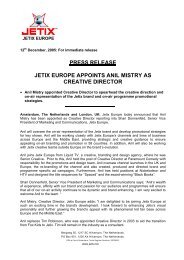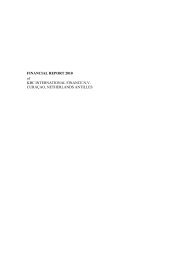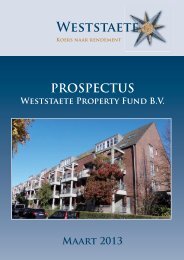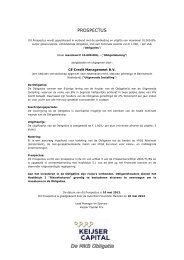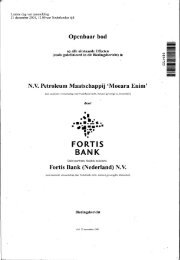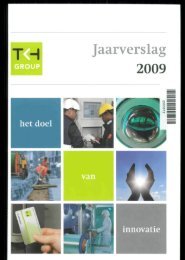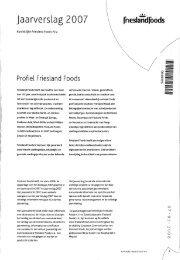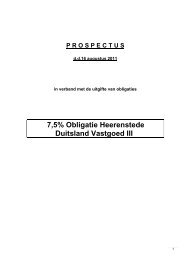Pallet-Management-Services - AFM
Pallet-Management-Services - AFM
Pallet-Management-Services - AFM
Create successful ePaper yourself
Turn your PDF publications into a flip-book with our unique Google optimized e-Paper software.
Derecognition<br />
Financial assets<br />
A financial asset (or, where applicable a part of a financial asset or part of a group of similar<br />
financial assets) is derecognized where:<br />
• the rights to receive cash flows from the asset have expired;<br />
• the Company retains the right to receive cash flows from the asset, but has assumed an<br />
obligation to pay them in full without material delay to a third party under a ‘pass-through'<br />
arrangement; or<br />
• the Company has transferred its rights to receive cash flows from the asset and either<br />
(a) has transferred substantially all the risks and rewards of the asset, or (b) has neither<br />
transferred nor retained substantially all the risks and rewards of the asset, but has<br />
transferred control of the asset.<br />
Where the Company has transferred its rights to receive cash flows from an asset and has<br />
neither transferred nor retained substantially all the risks and rewards of the asset nor<br />
transferred control of the asset, the asset is recognized to the extent of the Company's<br />
continuing involvement in the asset. Continuing involvement that takes the form of a guarantee<br />
over the transferred asset is measured at the lower of the original carrying amount of the asset<br />
and the maximum amount of consideration that the Company could be required to repay.<br />
Where continuing involvement takes the form of a written and/or purchased option (including a<br />
cash-settled option or similar provision) on the transferred asset, the extent of the Company's<br />
continuing involvement is the amount of the transferred asset that the Company may<br />
repurchase, except that in the case of a written put option (including a cash-settled option or<br />
similar provision) on an asset measured at fair value, the extent of the Company's continuing<br />
involvement is limited to the lower of the fair value of the transferred asset and the option<br />
exercise price.<br />
Financial liabilities<br />
A financial liability is derecognized when the obligation under the liability is discharged or<br />
cancelled or expires.<br />
Where an existing financial liability is replaced by another from the same lender on substantially<br />
different terms, or the terms of an existing liability are substantially modified, such an exchange<br />
or modification is treated as a derecognition of the original liability and the recognition of a new<br />
liability, and the difference in the respective carrying amounts is recognized in profit or loss.<br />
Derivatives<br />
The Company uses derivative financial instruments such as foreign currency contracts to hedge<br />
its risks associated with foreign currency fluctuations. Such derivative financial instruments are<br />
stated at fair value. The accounting for changes in the fair value of a derivative instrument<br />
depends on whether it has been designated and qualifies as part of a hedging relationship and,<br />
further, on the type of hedging relationship. At the inception of the hedge relationship, the<br />
Company must designate the derivative instrument as either a fair value hedge, a cash flow<br />
hedge or a hedge of a net investment in a foreign operation. This designation is based upon the<br />
exposure being hedged.<br />
On November 24, 2003, the Company entered into a forward exchange contract in order to<br />
offset the cash flow variability related to changes in exchange rates on certain intercompany<br />
37



